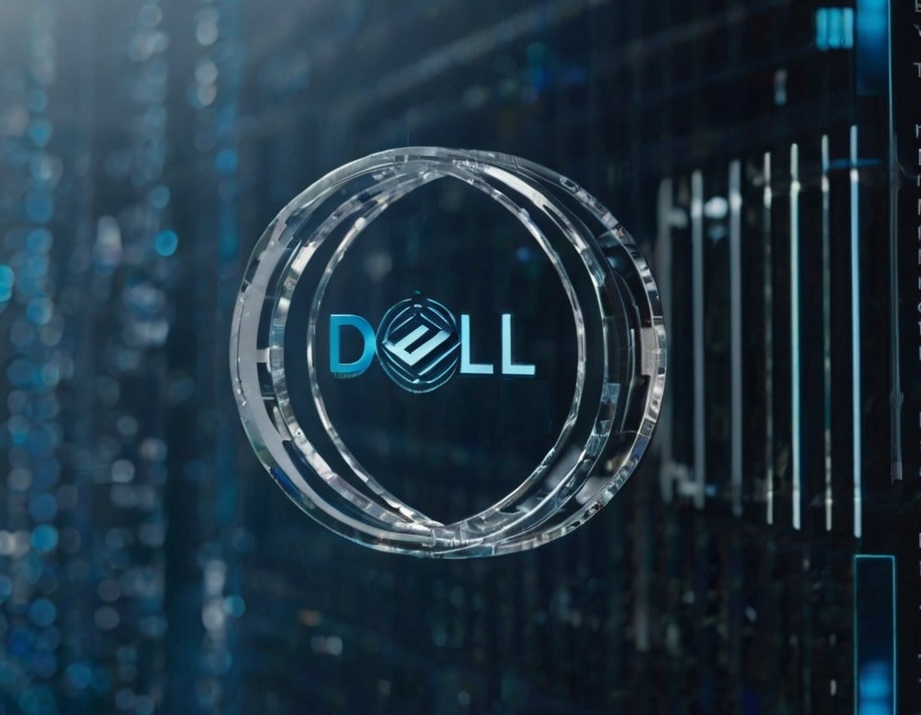In a significant move that reflects the rapidly evolving landscape of the tech industry, Dell Technologies has announced a major reorganization of its global sales division, resulting in the layoff of approximately 12,500 employees—roughly 10% of its worldwide workforce. This dramatic shift comes as part of the company’s strategic pivot towards artificial intelligence (AI) and its efforts to streamline operations for what it sees as the dawning AI era.
Dell informed its employees of these sweeping changes through an internal memo dramatically titled “Global Sales Modernization Update.” The memo, sent by senior executives Bill Scannell and John Byrne, outlined ambitious plans to centralize sales teams and create a new AI-focused sales unit. In a statement that encapsulates the company’s new direction, the executives declared, “We are getting leaner. We’re streamlining layers of management and reprioritizing where we invest.”
This restructuring is not an isolated incident but rather the latest in a series of moves by Dell to reshape its workforce. It follows two rounds of layoffs in 2023, which had already reduced Dell’s global workforce from 133,000 to about 120,000 employees. The company’s stated goal is to become more agile and growth-focused through this process, prioritizing investments to enhance innovation, value, and service for its customers and partners.

To understand the context of these layoffs, it’s crucial to examine Dell’s recent financial performance. The company reported annual sales of $88.4 billion for the 2024 fiscal year, marking a significant 14% decline from the previous year. This figure is $13.5 billion less than its record $101.9 billion in 2022. Such a substantial downturn in financial performance likely played a major role in the decision to restructure and reduce costs.
In response to these challenges, Dell is not only cutting jobs but also introducing new initiatives. One such program is the “Partner First For Storage” initiative, which encourages core sellers to route storage deals through channel partners. CEO Michael Dell and other leaders have praised this move as a way to strengthen relationships with channel partners, potentially offsetting some of the negative impacts of the layoffs.
The announcement of these layoffs has sparked a range of reactions within the tech industry, offering insights into how Dell’s moves might reshape the broader IT landscape.
Gary McConnell, CEO of Dell Platinum partner VirtuIT Systems, sees the layoffs as indicative of Dell’s increased reliance on channel partners. In a show of optimism amidst the upheaval, McConnell encourages those affected by the layoffs to seek opportunities within the channel. He stated, “This restructuring demonstrates Dell’s commitment to working more closely with partners, despite the uncertainty that accompanies such changes.”
Taking a different angle, Bob Venero, CEO of Future Tech, views the cutbacks as Dell’s strategic move to leverage AI for increased productivity. Venero believes that relying more on the channel will ultimately benefit Dell as the company refocuses its energies on innovative products and solutions. He emphasized Dell’s exponential growth in channel presence over the past two decades and expressed confidence in the company’s continued strength in the market.
Providing an insider’s perspective, Denise Millard, Dell’s Chief Partner Officer, discussed the potential benefits of the reorganization for both the company and its partners. She noted that Dell is streamlining various departments to promote better collaboration and capitalize on what she described as a “$2 trillion-plus market opportunity.” Millard highlighted the substantial changes brought about by generative AI and the rapidly evolving technology landscape, emphasizing the crucial role of partners in unlocking value for modern IT and AI implementations.
The Dell layoffs, while significant in their own right, are part of a broader trend sweeping through the tech industry. Companies across the sector are increasingly pivoting towards AI and automation, a shift that is likely to have profound and far-reaching implications for the future IT job market:
- Skill Set Evolution: There will be a dramatic increase in demand for professionals with expertise in AI, machine learning, and data science. Traditional IT roles will need to adapt and incorporate AI-related competencies to remain relevant.
- Job Displacement: Certain roles, particularly in middle management and traditional sales, may become redundant as companies streamline operations and leverage AI for increased efficiency. This could lead to a significant reshuffling of the IT workforce.
- Emphasis on Innovation: Companies will likely prioritize roles that drive innovation and create new AI-driven products and services. This could lead to a surge in demand for creative technologists and visionary tech leaders.
- Changing Nature of Work: The IT job market may see a fundamental shift towards more project-based or contract work as companies strive to become leaner and more agile. This could result in a more flexible but potentially less stable job market.
- Increased Competition: With major tech companies like Dell implementing large-scale layoffs, the job market may become significantly more competitive, especially for entry-level and mid-level positions.
- Focus on Soft Skills: As AI takes over more routine and analytical tasks, human skills such as creativity, critical thinking, emotional intelligence, and complex problem-solving will become increasingly valuable.
- Geographical Shifts: The rise of remote work, coupled with AI-driven operations, may lead to significant changes in where IT jobs are located. This could potentially create new tech hubs or allow for more globally distributed workforces.
- Ethical Considerations: As AI becomes more prevalent, there will likely be an increased focus on AI ethics and responsible implementation, potentially creating new roles and specializations within the IT field.
- Interdisciplinary Roles: The integration of AI across various sectors may lead to a rise in roles that combine IT skills with domain expertise in fields like healthcare, finance, or manufacturing.
- Continuous Learning Culture: The rapid pace of technological change will necessitate a culture of continuous learning and adaptation within the IT workforce.

For IT professionals and those entering the field, navigating this changing landscape will require a proactive and strategic approach. Here are several strategies that can help:
- Continuous Learning: Stay relentlessly updated with the latest technologies, especially in AI and related fields. Pursue online courses, certifications, and hands-on projects to build relevant skills. Platforms like Coursera, edX, and Udacity offer numerous AI and machine learning courses.
- Diversify Skill Sets: Develop a broad range of skills that combine technical expertise with business acumen, project management, and soft skills. This multidisciplinary approach can make you more versatile and valuable in a changing job market.
- Embrace Adaptability: Be prepared to pivot and adapt to new roles or industries as the job market evolves. Cultivate a mindset that sees change as an opportunity rather than a threat.
- Network and Build Relationships: Cultivate a strong professional network, both online and offline. Attend industry conferences, participate in hackathons, and engage with professional associations to stay informed about job opportunities and industry trends.
- Consider Entrepreneurship or Freelancing: Explore opportunities to start your own tech ventures or offer specialized services as a freelancer or consultant. The gig economy may offer new avenues for IT professionals to leverage their skills.
- Focus on AI Ethics and Responsible Implementation: Develop expertise in the ethical considerations and responsible implementation of AI technologies. This growing field combines technical knowledge with critical thinking and ethical reasoning.
- Explore Emerging Sectors: Look for opportunities in industries that are adopting AI and other advanced technologies. Healthcare, finance, education, and manufacturing are just a few sectors undergoing significant digital transformations.
- Develop Cross-Functional Expertise: Combine IT skills with knowledge in other domains. For example, expertise in both data science and healthcare could position you well for the growing field of medical AI.
- Stay Informed About Industry Trends: Regularly follow tech news, attend webinars, and participate in professional forums to stay ahead of industry developments. Publications like MIT Technology Review, Wired, and TechCrunch can provide valuable insights.
- Consider Upskilling or Reskilling: If your current role is at risk of automation, proactively seek opportunities to upskill in areas that complement AI or reskill for roles that are likely to remain in demand. This might involve transitioning from a pure coding role to one that involves AI model design or interpretation, for example.
- Develop Leadership Skills: As routine tasks become automated, strong leadership and strategic thinking skills will become even more crucial. Consider courses or experiences that can enhance your leadership capabilities.
- Focus on Human-AI Collaboration: Develop skills in areas where humans and AI can work together synergistically. This might involve expertise in human-in-the-loop systems or AI-assisted decision making.
- Cultivate Creativity and Innovation: While AI excels at data processing and pattern recognition, human creativity remains irreplaceable. Focus on developing your creative problem-solving skills and ability to innovate.
- Build Communication Skills: As IT becomes more integrated with other business functions, the ability to communicate complex technical concepts to non-technical stakeholders will be invaluable.
- Embrace a Global Perspective: With the rise of remote work and distributed teams, cultivate a global mindset and cross-cultural communication skills.
Dell’s restructuring and layoffs are more than just corporate news—they’re a bellwether for the broader changes sweeping through the tech industry as companies adapt to the AI era. While these transitions can be challenging and even painful for affected employees and the job market as a whole, they also present unprecedented opportunities for those who are prepared to evolve with the industry.
The future IT job market will likely be characterized by a greater emphasis on AI-related skills, adaptability, and continuous learning. It will be a landscape where the boundaries between traditional IT roles blur, and where the ability to work alongside AI systems becomes as crucial as the ability to develop them.

By staying informed, developing relevant skills, and remaining flexible, IT professionals can position themselves to not just survive but thrive in this new landscape. As the industry continues to transform at an accelerating pace, it will be crucial for both companies and individuals to embrace change, focus on creating value in an AI-driven world, and never lose sight of the human elements that make technology truly impactful.
The Dell layoffs serve as a wake-up call—a reminder that the future of IT is not just coming; it’s already here. Those who recognize this shift and take proactive steps to adapt will be best positioned to lead in the exciting, if uncertain, world of tomorrow’s technology landscape.
Copyright©dhaka.ai
tags: Artificial Intelligence, Ai, Dhaka Ai, Ai In Bangladesh, Ai In Dhaka, Future of AI, Artificial Intelligence in Bangladesh, Dell



